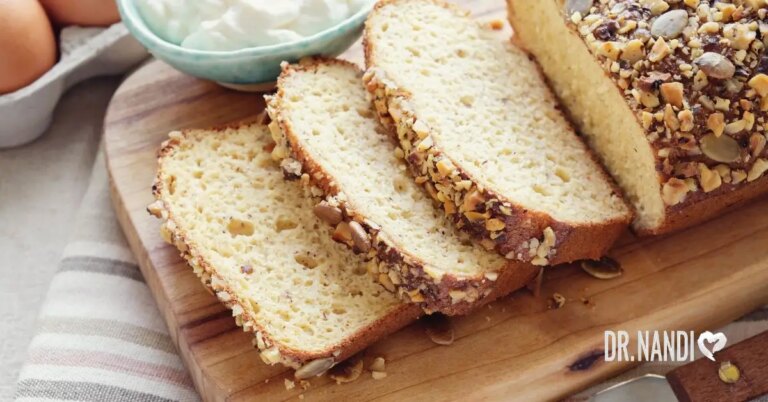In our continuous quest for a healthier life, we often find ourselves at the crossroads of tradition and modernity. As a doctor passionate about promoting a healthy lifestyle, I’ve seen firsthand the impact that natural remedies can have on our well-being. Today, we’re delving into the world of Berberine, a natural compound that’s emerging as a beacon of hope for many seeking alternatives to conventional diabetes treatments like Metformin.
This journey into the ancient wisdom of Berberine versus the scientific rigor of Metformin will uncover not just a comparison of treatments, but a revelation of how we can harness nature to enhance our health. Join me as we explore the potential of Berberine to revitalize our approach to diabetes management, setting the stage for a deeper understanding of its potential in modern wellness practices.
Metformin: A Conventional Diabetes Treatment
Metformin has long been the cornerstone of diabetes management, praised for its efficacy in lowering blood sugar levels and improving insulin sensitivity. As a first-line treatment for type 2 diabetes, it’s renowned not just for its ability to control glucose but also for its role in reducing the risk of cardiovascular events. Its mechanisms of action are multifaceted: it suppresses glucose production in the liver, enhances the sensitivity of cells to insulin, and decreases the absorption of glucose in the intestines. This triad of actions makes Metformin a powerful ally in the fight against diabetes.
However, the story of Metformin is not without its complications. Despite its benefits, Metformin can deplete essential nutrients in the body, specifically magnesium and vitamin B12.
Metformin’s Impact on Magnesium and Vitamin B12
Magnesium is crucial for muscle and nerve function, blood glucose control, and bone health, while vitamin B12 plays a vital role in nerve function and the production of DNA and red blood cells. The long-term use of Metformin has been associated with decreased levels of these nutrients, leading to potential health issues such as neuropathy, muscle weakness, anemia, irregular heartbeat, and increased susceptibility to bone fractures. Similarly, a deficiency in vitamin B12 can manifest as fatigue, memory problems, and mood swings, complicating the diabetes management puzzle.1
These side effects raise concerns for those on Metformin therapy, highlighting the importance of monitoring and supplementation. Yet, it also opens the door to exploring alternatives that might offer similar benefits without the same nutrient depletion. This is where Berberine steps into the light as a promising natural alternative.

Berberine: A Natural and Potent Alternative
Berberine emerges as a beacon for those seeking a natural approach to diabetes management. This compound, derived from plants like Berberis aristata, has been a cornerstone in traditional medicine for centuries, offering a bridge between ancient remedies and modern health needs. Unlike Metformin, Berberine targets diabetes management without the associated risk of depleting essential nutrients like magnesium and vitamin B12. Its appeal lies not only in what it offers but in what it avoids.
Mechanisms of Action:
Berberine’s therapeutic potential is grounded in its multifaceted mechanisms of action, closely mirroring some of Metformin’s pathways but with additional benefits. It activates AMP-activated protein kinase (AMPK), a regulatory enzyme often referred to as a metabolic master switch. This activation enhances insulin sensitivity, promotes glucose uptake by cells, and decreases glucose production in the liver, akin to Metformin’s effects.2 However, Berberine goes a step further by modulating the gut microbiome, offering anti-inflammatory and anti-oxidative effects, and improving lipid profiles, showcasing a broader spectrum of health benefits.3
The Comparative Edge:
The comparison between Berberine and Metformin illuminates Berberine’s unique advantage — its natural origin and fewer side effects, including the lack of nutrient depletion. While Metformin can lead to significant reductions in vitamin B12 and magnesium, Berberine offers a safer profile with the added benefits of supporting overall well-being beyond blood sugar control. Its impact on lipid metabolism and cardiovascular health further positions Berberine as not just an alternative, but a potentially superior option for individuals with diabetes or those at risk.
Safety and Efficacy:
Berberine’s safety profile is commendable, with most individuals tolerating it well. However, as with any supplement, it’s crucial to approach its use with informed caution. Consulting healthcare providers before starting Berberine, especially for those on existing diabetes medication or those with complex health conditions, ensures a tailored and safe integration into one’s health regimen.
The Timeless Wisdom of Berberine
Long before the advent of modern medicine, cultures around the globe turned to nature for healing. Berberine is a shining example of this ancient wisdom, a golden thread woven through the tapestry of traditional Chinese and Ayurvedic medicine. This potent compound is derived from a variety of plants known for their therapeutic properties, including the European barberry, goldenseal, goldthread, Oregon grape, and Phellodendron. Each of these plants carries a unique story of healing, contributing to Berberine’s reputation as a versatile and powerful remedy.
Historically, Berberine was revered for its ability to treat a myriad of conditions, from digestive disorders to infections. Its use in traditional medicine spans centuries, a testament to its enduring effectiveness. Today, we are rediscovering Berberine, not through folklore, but through the lens of scientific inquiry. The modern interest in Berberine is not a revival of ancient practices but an acknowledgment of their value in today’s health landscape.
As we peel back the layers of Berberine’s historical use, we find a common thread: the power of natural substances to support health and wellness. This ancient wisdom passed down through generations, forms the foundation of our exploration into Berberine’s potential as a natural alternative to conventional diabetes treatments like Metformin.
Berberine vs. Metformin: A Healthier Alternative?
The transition from Metformin to Berberine is not merely a switch in medication but a paradigm shift towards embracing the power of natural compounds in managing chronic conditions. Berberine’s ability to offer comprehensive metabolic benefits without compromising nutrient levels presents a compelling case for its consideration as a primary or adjunct therapy in diabetes management. The allure of Berberine lies in its promise of efficacy coupled with safety, offering a holistic approach to health that aligns with the body’s natural processes.
As we continue to explore the depths of natural remedies like Berberine, it’s essential to do so with a blend of optimism and scientific rigor. The ongoing research into Berberine’s effects, particularly in long-term studies, will further elucidate its role in diabetes care and beyond. For now, Berberine stands out as a testament to the potential of natural substances to not only match but exceed the expectations set by conventional treatments.

Berberine’s Multifaceted Health Benefits
The narrative of Berberine extends far beyond its role in diabetes management, painting a broader stroke on the canvas of health and wellness. Its multifaceted benefits underscore Berberine’s potential not just as a supplement for blood sugar control but as a cornerstone in a holistic health strategy. This natural compound, revered in ancient medicine, has found its spotlight in modern research, revealing its prowess in areas such as weight management, cardiovascular health, and mental well-being.
Weight Management:
Berberine is a powerful ally in the battle against obesity. It enhances metabolic function, helping to regulate fat accumulation and promote weight loss. This action is partly due to its ability to activate AMPK, which improves insulin sensitivity and encourages the breakdown of fat.4 Individuals looking to manage their weight may find Berberine an invaluable tool, as it aids in achieving a healthy balance without the adverse effects associated with pharmaceutical interventions.
Cardiovascular Health:
The benefits of Berberine also extend to the heart. It has been shown to improve lipid profiles by reducing total cholesterol, LDL (bad) cholesterol, and triglycerides while increasing HDL (good) cholesterol. These effects contribute to a reduced risk of cardiovascular diseases, making Berberine an essential component of heart health maintenance.5
Mental Well-being:
Emerging research highlights Berberine’s potential impact on mental health. Its anti-inflammatory and antioxidant properties may play a role in combating depression and anxiety by modulating neurotransmitter activity and protecting neural pathways.6 While further studies are needed to fully understand these effects, Berberine’s promise in this area opens new avenues for natural mental health support.
Anti-inflammatory and Antioxidant Effects:
Chronic inflammation is at the heart of many diseases, including diabetes, heart disease, and cancer. Berberine’s anti-inflammatory and antioxidant properties can mitigate this risk, offering protection against a range of conditions and supporting overall cellular health.7
Integrating Berberine into Your Wellness Routine
Embracing Berberine as part of your daily wellness routine involves more than just supplementation; it’s a commitment to a healthier lifestyle. Here are some practical tips to harness the full potential of Berberine:
- Consult Your Healthcare Provider: Before incorporating Berberine or any supplement into your regimen, consult with a healthcare professional. This is crucial for individuals with underlying health conditions or those taking other medications.
- Adopt a Holistic Approach: Combine Berberine supplementation with a balanced diet and regular exercise to maximize its health benefits. Berberine is most effective when part of a comprehensive approach to wellness.
- Monitor Your Health: Keep track of your health markers, including blood sugar levels, lipid profiles, and weight, to assess Berberine’s impact. Adjustments to your regimen should be made in consultation with your healthcare provider.
- Patience and Consistency: The benefits of Berberine, like many natural supplements, may take time to manifest. Consistency in use and patience is key to realizing its potential.
- Stay Informed: Research on Berberine is ongoing, with new studies continuously shedding light on its benefits and mechanisms. Staying informed about the latest findings can help you make educated decisions about its use.
Embracing Nature’s Gift: The Transformative Power of Berberine
Berberine’s journey from an ancient remedy to a modern-day miracle encapsulates the essence of holistic health. By offering a natural, comprehensive approach to managing diabetes, supporting cardiovascular health, aiding in weight management, and potentially enhancing mental well-being, Berberine stands as a testament to the power of nature in health and wellness. As we continue to explore and understand the full spectrum of its benefits, Berberine not only represents a bridge between traditional and contemporary medicine but also offers a beacon of hope for those seeking to improve their health naturally.
The invitation to integrate this powerful natural compound into your life is open. Embrace the potential of Berberine to transform your approach to health, guided by the wisdom of tradition and the clarity of scientific evidence.
My Personal RX on Metformin Alternatives in Diabetes Management
As a doctor deeply invested in the well-being of my patients, I often explore beyond conventional treatments to find holistic paths toward health. Managing diabetes is more than just controlling blood sugar; it’s about nurturing overall well-being. Here are my top tips, including some innovative products, to complement your journey toward managing diabetes naturally and holistically:
- Embrace a Balanced Diet: Prioritize whole foods, rich in fiber, lean proteins, and healthy fats. Nutrition is your first line of defense in managing diabetes effectively.
- Regular Physical Activity: Incorporate at least 30 minutes of moderate exercise into your daily routine. Physical activity helps improve insulin sensitivity and manage blood glucose levels.
- Consistent Monitoring: Keep a close eye on your blood sugar levels to understand how different foods and activities affect your body, allowing for more personalized diabetes management.
- Stress Management: Practice stress-reduction techniques such as meditation, yoga, or deep breathing exercises. Stress can significantly impact blood sugar levels, making management more challenging.
- Magnesium Essentials: Consider incorporating my “Magnesium Essentials” into your regimen. This unique product offers three forms of highly absorbed magnesium, ensuring your body reaps the full benefits of this crucial macromineral, often depleted by conventional diabetes treatments.
- Stay Hydrated: Drink plenty of water throughout the day. Proper hydration helps regulate blood sugar levels and supports metabolic health.
- Protocol Guide: Integrate my “Protocol Guide” into your health plan. This comprehensive guide focuses on holistic health, offering strategies to live your best life by addressing all aspects of wellness beyond just diabetes management.
- Quality Sleep: Prioritize getting 7-9 hours of quality sleep each night. Poor sleep can affect blood sugar control and insulin sensitivity.
- Natural Supplements: Explore natural supplements like Berberine, known for its ability to regulate blood sugar levels without the side effects associated with some conventional treatments.
- Consult Your Healthcare Team: Always work closely with your healthcare team to tailor any changes in your management plan to your specific needs, especially when integrating new supplements or significant lifestyle changes.
From my perspective, managing diabetes requires a comprehensive approach that goes beyond medication. It’s about creating a lifestyle that supports your health holistically. My Products like “Magnesium Essentials” and the “Protocol Guide” can be valuable tools in your arsenal, offering support that aligns with a natural and proactive approach to health.
Sources
- Kim, J., Ahn, C. W., Fang, S., Lee, H. S., & Park, J. S. (2019). Association between metformin dose and vitamin B12 deficiency in patients with type 2 diabetes. Medicine, 98(46), e17918. https://doi.org/10.1097/md.0000000000017918 ↩︎
- Xie, W., Su, F., Wang, G., Peng, Z., Xu, Y., Zhang, Y., Xu, N., Hou, K., Hu, Z., Chen, Y., & Chen, R. (2022). Glucose-lowering effect of berberine on type 2 diabetes: A systematic review and meta-analysis. Frontiers in Pharmacology, 13. https://doi.org/10.3389/fphar.2022.1015045 ↩︎
- Lee, Y. S., Kim, W. S., Kim, K. H., Yoon, M. J., Cho, H. J., Shen, Y., Ye, J., Lee, C. H., Oh, W. K., Kim, C. T., Hohnen-Behrens, C., Gosby, A. K., Kraegen, E. W., James, D. E., & Kim, J. (2006). Berberine, a natural plant product, activates AMP-Activated protein kinase with beneficial metabolic effects in diabetic and Insulin-Resistant states. Diabetes, 55(8), 2256–2264. https://doi.org/10.2337/db06-0006 ↩︎
- Ilyas, Z., Perna, S., Al-Thawadi, S., Alalwan, T. A., Riva, A., Petrangolini, G., Gasparri, C., Infantino, V., Peroni, G., & Rondanelli, M. (2020). The effect of Berberine on weight loss in order to prevent obesity: A systematic review. Biomedicine & Pharmacotherapy, 127, 110137. https://doi.org/10.1016/j.biopha.2020.110137 ↩︎
- Blais, J. E., Xin, H., & Zhao, J. (2023). Overall and Sex-Specific Effect of Berberine for the Treatment of Dyslipidemia in Adults: A Systematic Review and Meta-Analysis of Randomized Placebo-Controlled Trials. Drugs, 83(5), 403–427. https://doi.org/10.1007/s40265-023-01841-4 ↩︎
- Tian, E., Sharma, G., & Dai, C. (2023). Neuroprotective properties of berberine: molecular mechanisms and clinical implications. Antioxidants, 12(10), 1883. https://doi.org/10.3390/antiox12101883 ↩︎
- Ai, X., Yu, P., Peng, L., Luo, L., Liu, J., Li, S., Lai, X., Luan, F., & Meng, X. (2021). Berberine: A Review of its Pharmacokinetics Properties and Therapeutic Potentials in Diverse Vascular Diseases. Frontiers in Pharmacology, 12. https://doi.org/10.3389/fphar.2021.762654 ↩︎




















